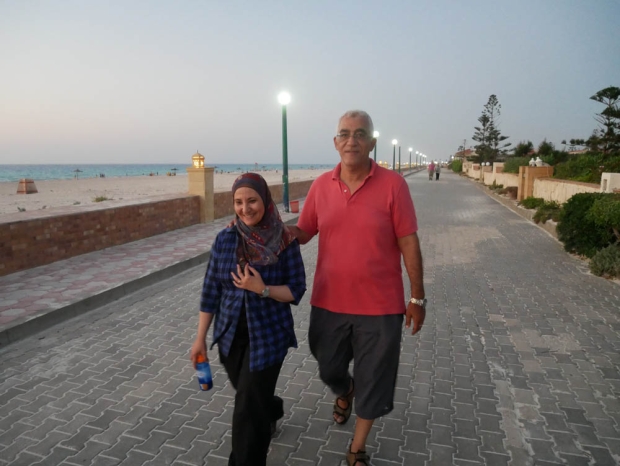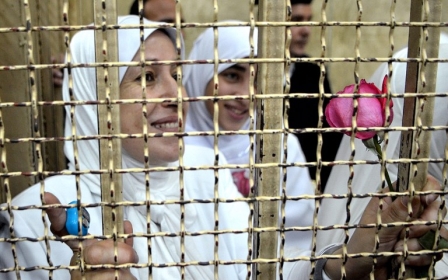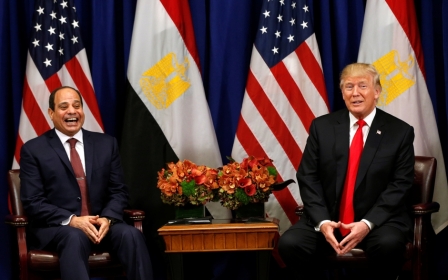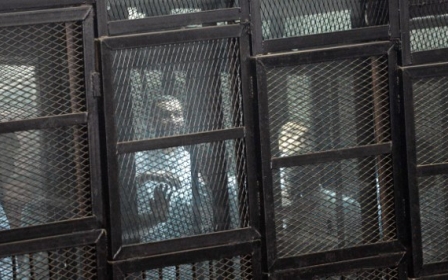US must stand up for my parents, trapped in Egypt's prison system
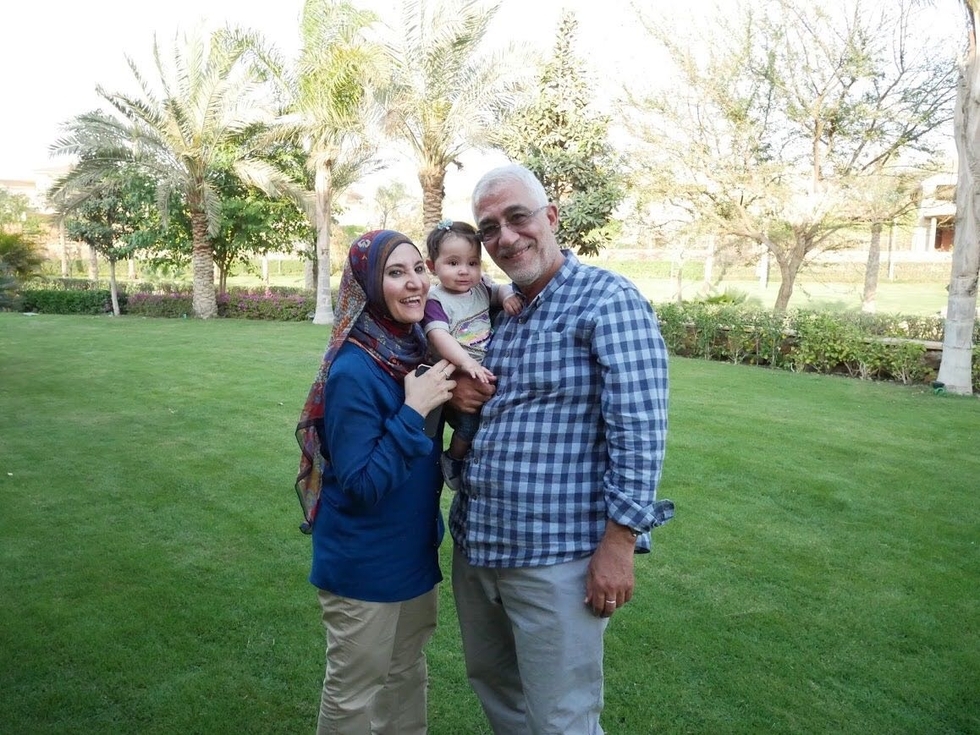
Egypt's dark and infamous prisons have never been known for their adherence to international human rights standards. Within the walls of these prisons - better known for their abuse of human dignity and techniques for breaking the human spirit - both of my parents have been confined for more than a year.
Ola al-Qaradawi and Hosam Khalaf have been imprisoned in Egypt without trial for 410 days. The conditions are so atrocious that my mother may actually die. She has started a hunger strike. After seeing her through a glass cage, her lawyer is greatly concerned about her degraded health.
It’s high time for the international community to intervene on my parents’ behalf.
Solitary confinement
My parents were taken by Egyptian authorities in June 2017 and tossed almost immediately into solitary confinement. Unsurprisingly, Egyptian security forces haven’t even bothered charging them with a crime.
It’s almost impossible to convey just how degrading and inhumane the conditions of my parents’ imprisonment are. My mother has been kept in Egypt’s al-Qanater women’s prison for more than a year. Inside her tiny cell, there’s no light, mattress or toilet, and cockroaches roam freely on the floor. Held in the “punishment wing”, which is isolated from the main prison, my mother is abused physically and verbally and forced to clean the toilets of other inmates.
Inside her tiny cell, there’s no light, mattress or toilet, and cockroaches roam freely on the floor
Prison authorities won’t let her use the bathroom for more than five minutes a day. The sheer psychological stress, combined with myriad health concerns, has made the situation life-threatening for her, our lawyer has confirmed.
Amnesty International and Human Rights Watch have been vocal in their condemnation of the Egyptians’ horrific treatment of my parents. Amnesty recently reported that my mother’s prison treatment amounts to torture by international standards.
Hunger strike
Before her arrest, my mother was a healthy and vibrant woman who loved to play with my young daughters, her grandchildren. She laughed easily and liked to take walks with my father, who is detained in a separate prison.
Today, my mother is denied all communication with family and any decent medical care. She is given contaminated food (which she has refused since starting her hunger strike), physically abused and held almost constantly in solitary confinement.
Think about that for a second. An otherwise healthy senior woman has been gradually driven towards a near-death state by a regime that specialises in torturing prisoners who they don’t bother charging.
In the past few months, we have seen American families reunited with loved ones who had been held hostage in North Korea and Venezuela. If the Trump administration can get hostages out of countries who call themselves our enemies, why not Egypt, with whom the US has a much stronger relationship?
Lives hanging in the balance
I believe that the US, of which I am a citizen, has an opportunity to exercise its political and diplomatic agency on behalf of human rights by standing up for my parents.
American taxpayers have gifted Egypt more than $76bn in US foreign aid since 1948, including $1.3bn a year in military aid in recent years. But what many people don’t know is that under US law, a large chunk of that money comes with a condition: Egypt must prove it is taking steps to uphold the human rights of its citizens, such as freeing political prisoners.
International human rights lawyer Jared Genser echoed these words when he presented my parents' case before the US House Foreign Affairs Committee last month.
Vice President Mike Pence’s visit to Cairo earlier this year, and his willingness to bring up the plight of these prisoners, was a turning point for Egypt, along with the US Senate’s decision last month to withhold $300m in military aid until Egypt meets several human rights conditions.
If the Trump administration wants to be known for sticking up for its country, it must continue advocating on behalf of people such as my parents, whose freedom - and lives - hang precariously in the balance.
- Aayah Hossam lives in Seattle, Washington with her husband and two daughters. She is the Free Ola and Hossam campaign spokesperson.
The views expressed in this article belong to the author and do not necessarily reflect the editorial policy of Middle East Eye.
Photo: Ola al-Qaradawi and Hosam Khalaf were arrested in June 2017, but never charged with any crime (Courtesy of Aayah Hossam)
New MEE newsletter: Jerusalem Dispatch
Sign up to get the latest insights and analysis on Israel-Palestine, alongside Turkey Unpacked and other MEE newsletters
Middle East Eye delivers independent and unrivalled coverage and analysis of the Middle East, North Africa and beyond. To learn more about republishing this content and the associated fees, please fill out this form. More about MEE can be found here.



